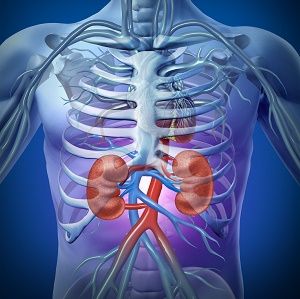CREDENCE Study Hits Landmark Status at Kidney Week
During Kidney Week, investigators present data showing that canagliflozin could be beneficial for patients across various levels of kidney function.

Already a proven treatment for cardiovascular disease, canagliflozin (INVOKANA) could help patients suffering from kidney disease, after positive results from the CREDENCE (Canagliflozin and Renal Events in Diabetes with Established Nephropathy Clinical Evaluation) study.
During American Society of Nephrology (ASN) Kidney Week in Washington, D.C., Janssen Pharmaceutical Companies of Johnson & Johnson announced the results of the phase III study, showing the consistent renal and cardiovascular benefit in treating patients with moderate to severe renal deficiency with canagliflozin, the only diabetes medicine indicated to slow down the progression of diabetic nephropathy.
The medication also reduces the risk of hospitalization for heart failure in patients with type 2 diabetes and diabetic nephropathy.
In the CREDENCE study, the investigators found patients with various levels of kidney function or estimated glomerular filtration rates (eGFR) benefit with a reduced risk of renal and cardiovascular events.
In the secondary analysis, the team sough to test whether the effects of the treatment on clinically important outcomes were consistent across all eGFR screening levels.
The study included 4401 patients, 1313 (30%) of which had moderately to severely decreased kidney function (eGFR 30 to <45 mL/min/1.73 m2), while 1279 (29%) had mildly to moderately decreased kidney function (eGFR 45 to <60 mL/min/1.73 m2) and 1,809 (41 percent) had mildly decreased kidney function (eGFR 60 to <90 mL/min/1.73 m2).
In patients with eGFR 30 to <45 mL/min/1.73 m2, treatment compared to placebo reduced the primary composite endpoint by 25% (events occurred in 72.2 vs 95.4 participants, respectively, per 1000 patient-years; HR, .75; 95% CI, .59-.95) and the renal-specific composite endpoint by 29% (events occurred in 51.6 vs 71.7 participants, respectively, per 1000 patient-years; HR, .71; 95% CI, .53-.94).
Canagliflozin was particularly effective when compared to placebo in reducing the composite of cardiovascular death or hospitalization for heart failure by 31% (events occurred in 40.7 vs 59.1 participants, respectively, per 1000 patient-years; HR, .69; 95% CI, .50-.94).
The drug also reduced hospitalization for heart failure alone by 30% (events occurred in 22.8 vs 32.3 participants, respectively, per 1000 patient-years; HR, .70; 95% CI, .46-1.06).
Treatment also reduced the composite of cardiovascular death, heart attack, or stroke by 23% (events occurred in 47.2 vs 61.7 participants, respectively, per 1000 patient-years; HR, .77; 95% CI, 0.57-1.03).
In the study, canagliflozin led to fewer adverse and serious adverse events overall across all screening eGFR subgroups.
The rates of specific adverse events such as fractures, amputations, and urinary tract infections were similar amongst both groups of patients, while canagliflozin reduced A1c, blood pressure, body weight, and albuminuria compared to placebo.
"We now know that the renal and cardiovascular benefits of canagliflozin are preserved across a wide eGFR range from 90 to 30 mL/min/1.73 m2. Because they were at higher risk to begin with, the absolute benefit for preventing the progression of kidney disease was greater in patients who already had renal insufficiency," CREDENCE study investigator Meg J. Jardine, MBBS, Ph.D., Deputy Director, Renal & Metabolic Division, The George Institute for Global Health, and Associate Professor, Faculty of Medicine, University of New South Wales Sydney, said in a statement.
"Importantly, there was no difference in the safety profile as eGFR decreased, which should provide physicians with even more confidence when prescribing canagliflozin across the broadest range of eGFR levels."
In September, the US Food and Drug Administration (FDA) approved canagliflozin as a treatment to reduce the risk end-stage kidney disease, doubling serum creatinine, cardiovascular death, and hospitalization for heart failure in adults with type 2 diabetes and diabetic nephropathy with a certain amount of protein in their urine.